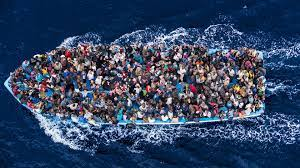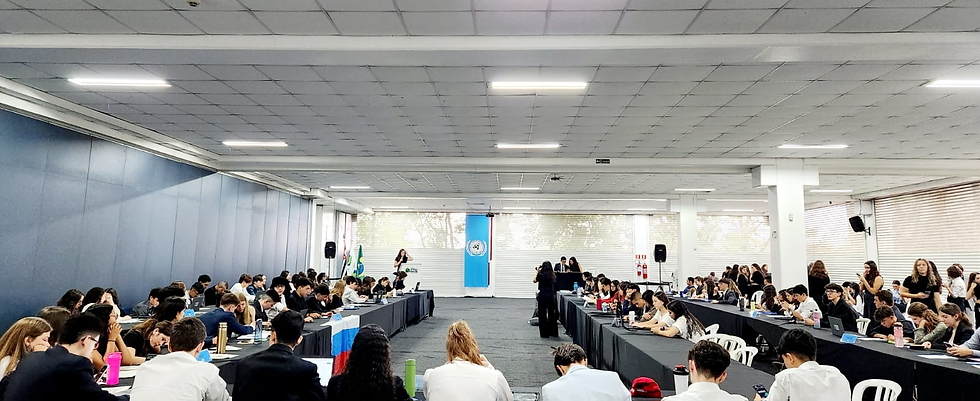Delegates return to the assembly with heated debates
- onuvitalimprensa

- 16 de nov. de 2021
- 2 min de leitura
Delegates return to the assembly after a short break, beginning the voting period for the delegations` proposals in each committee.
Check out what happened during that time:
Human, organ trafficking and sexual exploitation
The joint proposal by Syria and Russia (Syria would receive Russian financial support with application to public security and internal development, while Russia would receive 20% of Syrian profit from oil exports) is rejected by the other participating delegations, on the grounds that the Syrian government has corrupt characteristics and that the real intentions of Russia in this agreement would be to exert control over the Middle East region, which is rich in oil.
On the alliance between Brazil, Colombia, Mexico and the United States (customs monitoring to reduce irregular immigration and economic aid plan to reduce social inequalities), Syria asks how they would ensure that mutual support would not increase social inequality, which delegates from the aforementioned countries responded by stating that there would be a government intermediary.
Colombia questions the proposal of the United States and Saudi Arabia to combat the sale of illicit drugs on the internet, asking how they intend to control the private sector. Therefore, the countries involved respond that, through legislation, companies that contribute to this crime will be punished. Continuing, the Indian delegation questions the harmony between the United States and Saudi Arabia and the effectiveness of the proposal, however, the two countries claim that mutual help and an agreement are being established and that the resolution of the problem has a global scope.
Organized crime
The proposal between Pakistan, Morocco and the European Community (mutual assistance between countries in border control and punishment and inspection of traffickers) is questioned by the Brazilian delegation, arguing that there is no way the inspection does not affect immigration, however, the Moroccan delegate argues that it would be beneficial as it would increase the supply of jobs. Furthermore, Syria questions Morocco about the use of cannabis for medicinal purposes, thus, the Syrian delegates ensure that the use of this substance for medicine would continue to be allowed, however, prohibited for leisure and entertainment. Thus, the proposal was approved.
Morocco questions the alliance between the United States and Mexico (monitoring customs barriers to reduce irregular immigration and economic plans to reduce social inequalities), when asking how the borders between the countries would work. The United States rebuts the question, stating that both countries would collaborate to reduce illegal immigration. Thus, the proposal was accepted.

Pakistan opposes Syria's proposal on the grounds that it could lead to war. However, the Syrian delegation refutes the Pakistani position saying that they are already in a war associated with terrorism, thus, violent measures to combat terrorist groups are inevitable, as there is no way to resolve disputes through dialogue. In addition, the Colombian delegation also questions Syria about these violent measures, opposing the fight against violence with violence itself. This position is supported by several delegations, including Pakistan, the United States and Mexico, however, paradoxically, the proposal is approved.
Redatora: Mariana Miura





Comments